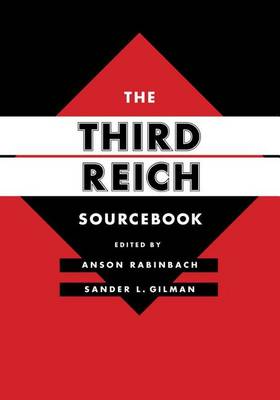Weimar and Now: German Cultural Criticism
2 primary works
Book 14
These essays by eminent European intellectual and cultural historian Anson Rabinbach address the writings of key figures in twentieth-century German philosophy. Rabinbach explores their ideas in relation to the two world wars and the horrors facing Europe at that time.
Analyzing the work of Benjamin and Bloch, he suggests their indebtedness to the traditions of Jewish messianism. In a discussion of Hugo Ball's little-known Critique of the German Intelligentsia, Rabinbach reveals the curious intellectual career of the Dadaist and antiwar activist turned-nationalist and anti-Semite. His examination of Heidegger's "Letter on Humanism" and Jaspers's The Question of German Guilt illuminates the complex and often obscure political referents of these texts. Turning to Horkheimer and Adorno's Dialectic of Enlightenment, Rabinbach offers an arresting new interpretation of this central text of the critical theory of the Frankfurt School. Subtly and persuasively argued, his book will become an indispensable reference point for all concerned with twentieth-century German history and thought.
Analyzing the work of Benjamin and Bloch, he suggests their indebtedness to the traditions of Jewish messianism. In a discussion of Hugo Ball's little-known Critique of the German Intelligentsia, Rabinbach reveals the curious intellectual career of the Dadaist and antiwar activist turned-nationalist and anti-Semite. His examination of Heidegger's "Letter on Humanism" and Jaspers's The Question of German Guilt illuminates the complex and often obscure political referents of these texts. Turning to Horkheimer and Adorno's Dialectic of Enlightenment, Rabinbach offers an arresting new interpretation of this central text of the critical theory of the Frankfurt School. Subtly and persuasively argued, his book will become an indispensable reference point for all concerned with twentieth-century German history and thought.
Book 47
No documentation of National Socialism can be undertaken without the explicit recognition that the "German Renaissance" promised by the Nazis culminated in unprecedented horror - World War II and the genocide of European Jewry. With "The Third Reich Sourcebook", editors Anson Rabinbach and Sander L. Gilman present a comprehensive collection of newly translated documents drawn from wide-ranging primary sources, documenting both the official and unofficial cultures of National Socialist Germany from its inception to its defeat and collapse in 1945. Framed with introductions and annotations by the editors, the documents presented here include official government and party pronouncements, texts produced within Nazi structures, such as the official Jewish Cultural League, as well as documents detailing the impact of the horrors of National Socialism on those who fell prey to the regime, especially Jews and the handicapped.
With thirty chapters on ideology, politics, law, society, cultural policy, the fine arts, high and popular culture, science and medicine, sexuality, education, and other topics, "The Third Reich Sourcebook" is the ultimate collection of primary sources on Nazi Germany.
With thirty chapters on ideology, politics, law, society, cultural policy, the fine arts, high and popular culture, science and medicine, sexuality, education, and other topics, "The Third Reich Sourcebook" is the ultimate collection of primary sources on Nazi Germany.

